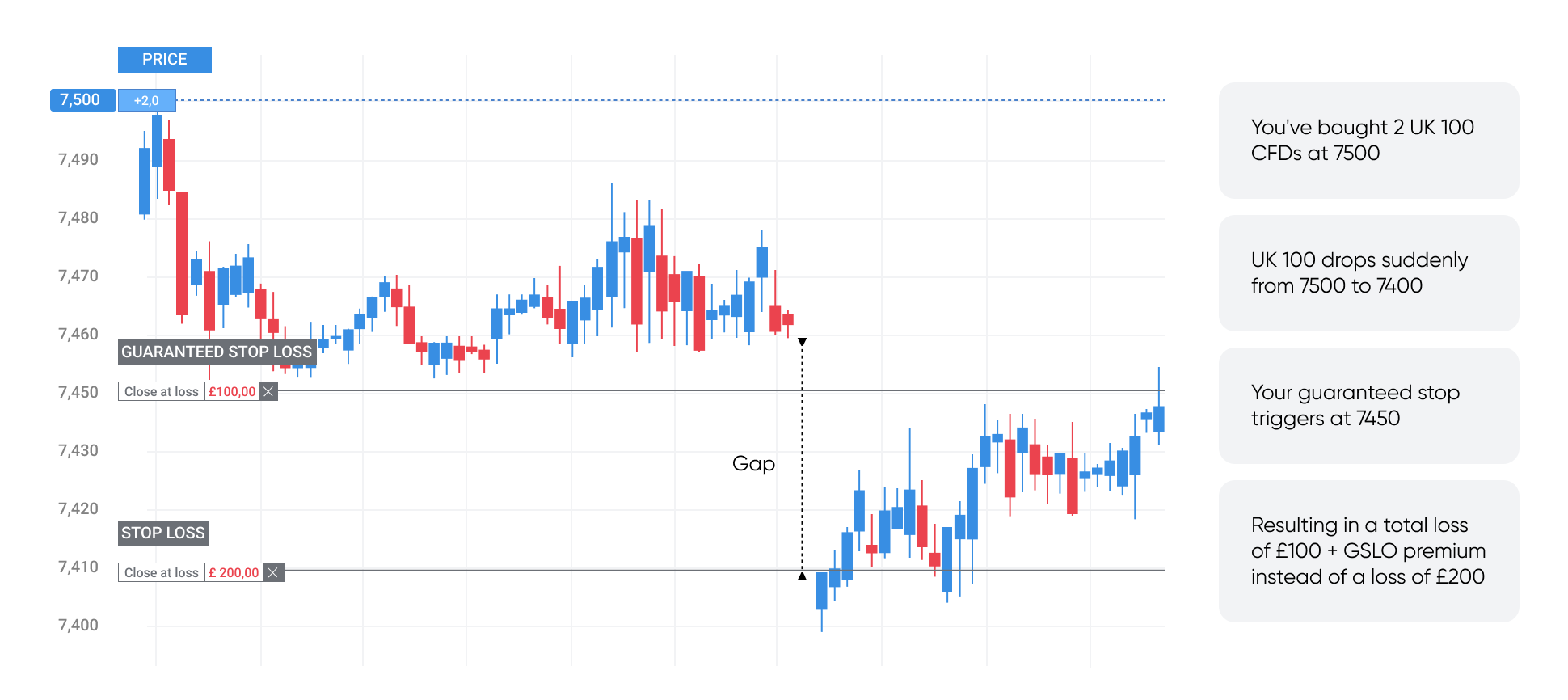Summary
- We make money from spreads, guaranteed stop-loss orders, currency conversion fees, and overnight funding. You’ll pay no commission on any positions you take with us.
- In line with our mission to assist our clients in making better decisions, we’ve invested heavily in tools to help our clients trade.
- Capital.com implements negative balance protection for retail clients, so trading losses can never exceed the funds on the account. If you want to maintain a position after a margin call, you’ll be able to deposit more funds to cover your margin requirement and prevent your trade from being closed.
- We aim to build long-lasting relationships with our clients based on trust.
Spreads
Spreads are the difference between the buy and the sell price of a tradable security, and represent the primary way brokers like us make money. Spreads can vary in size according to asset and market conditions.
For example, typically high-volume markets such as EUR/USD or gold might have spreads that are tighter than lesser-traded ones such as corn or orange juice. This means that the overall cost of trading highly-liquid markets can, relatively, be much lower than less liquid ones. However, less liquid markets often experience high volatility levels that can attract risk-aware traders, despite the higher cost.
Here’s the buy and sell price of an asset visualised, showing the spread from which our fee is derived. The size of the spread can vary depending on the market, based on factors such as market liquidity and volatility, meaning that your cost of trading can also vary in kind. It’s advisable always to make sure you’re aware of the cost of trading before you open a position.
Spread example
Let’s say you’re trading one US 500 CFD contract representing $1 per point of index movement. The spread for this index is 0.8 points. That means your spread cost is $1 X 0.8 = $0.80. You open a new position and increase your size to 10 contracts. Your spread cost will now be $0.8 X 10 = $8 for the position.
Now let’s say you’re trading GBP/USD at a notional value of £10,000 (also known as a mini-lot), with a spread of 0.00013 for the pair (equating to 1.3 points). You’ll pay 0.00013 X 10,000 = the equivalent of $1.30 in spread to open and close the position.
Guaranteed stop-loss orders
A standard stop-loss order is an instruction to sell a security at a particular level. However, it is not guaranteed to execute at the desired price, because of ‘slippage’. For example, during a market gap, a standard stop will typically execute at the next available price rather than the level specified. Slippage can occur in volatile markets or periods of low liquidity.
Meanwhile, a guaranteed stop-loss order, or GSLO, is a type of stop that guarantees closing a trade at a certain price, regardless of slippage or market gaps. While GSLOs can provide assurance that your trade will be executed at the price you expect, it’s important to note that they also incur a fee (premium) if triggered. Below is an example of a GSLO compared to a standard stop.

Overnight funding
Overnight funding is the industry-standard daily charge payable if you hold a position with us overnight. We charge it to recoup the costs of loaning money on leveraged positions outside a market’s standard hours. However, it can also be credited to you in certain scenarios when you hold a short position or some long positions.
Overnight funding is calculated differently depending on the asset class you’re trading. Factors that can affect it include interest-rate benchmarks (for example SONIA or SOFR), an overnight basis adjustment, an overnight swap rate, and our daily fee. A complete breakdown of the components to the charge per asset class, as well as example trades illustrating how it’s applied, can be found on our charges and fees page.
You might also be interested in...
Take a look at some more essential resources that shine a light on the key functions of our business.
- Charges and fees
- How we manage your money
- Ways to trade
